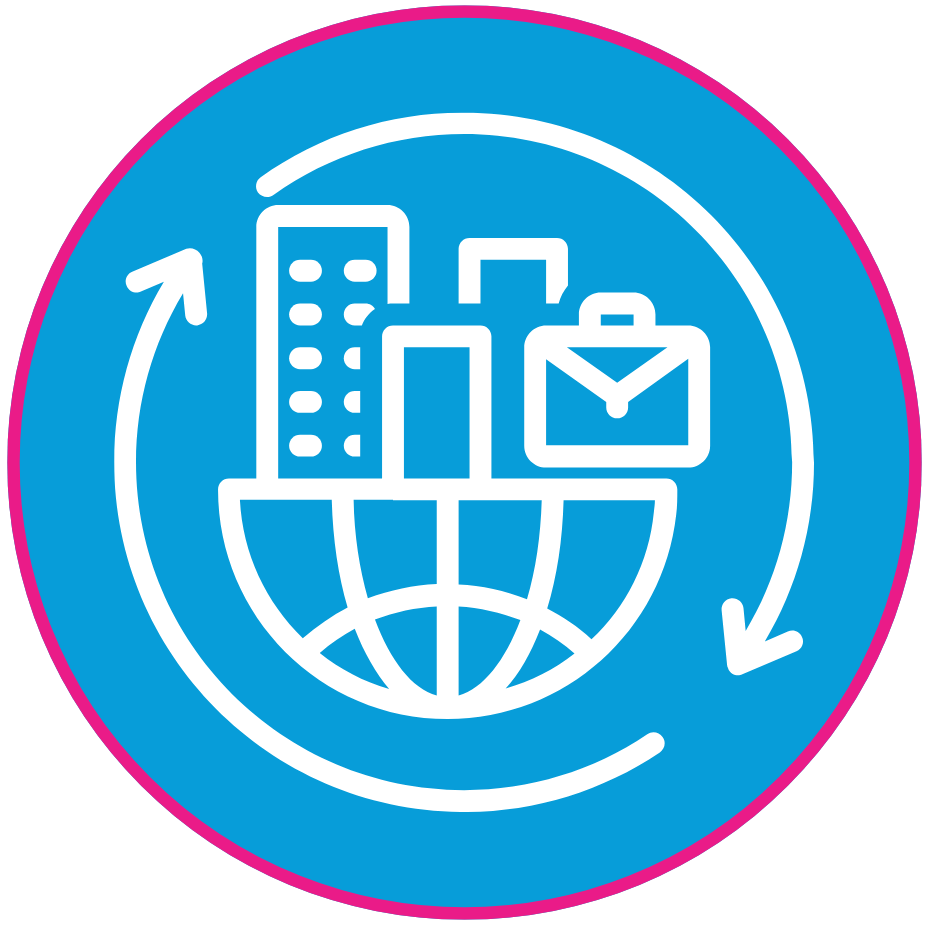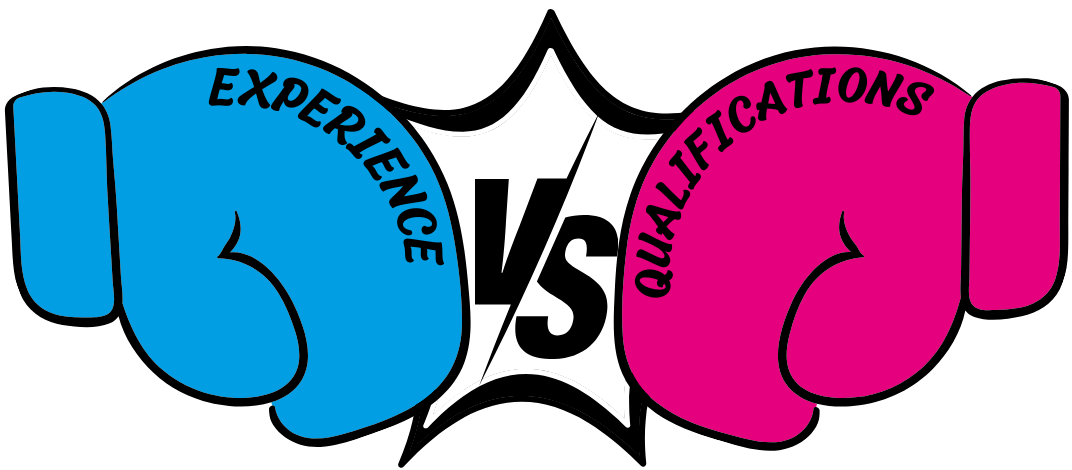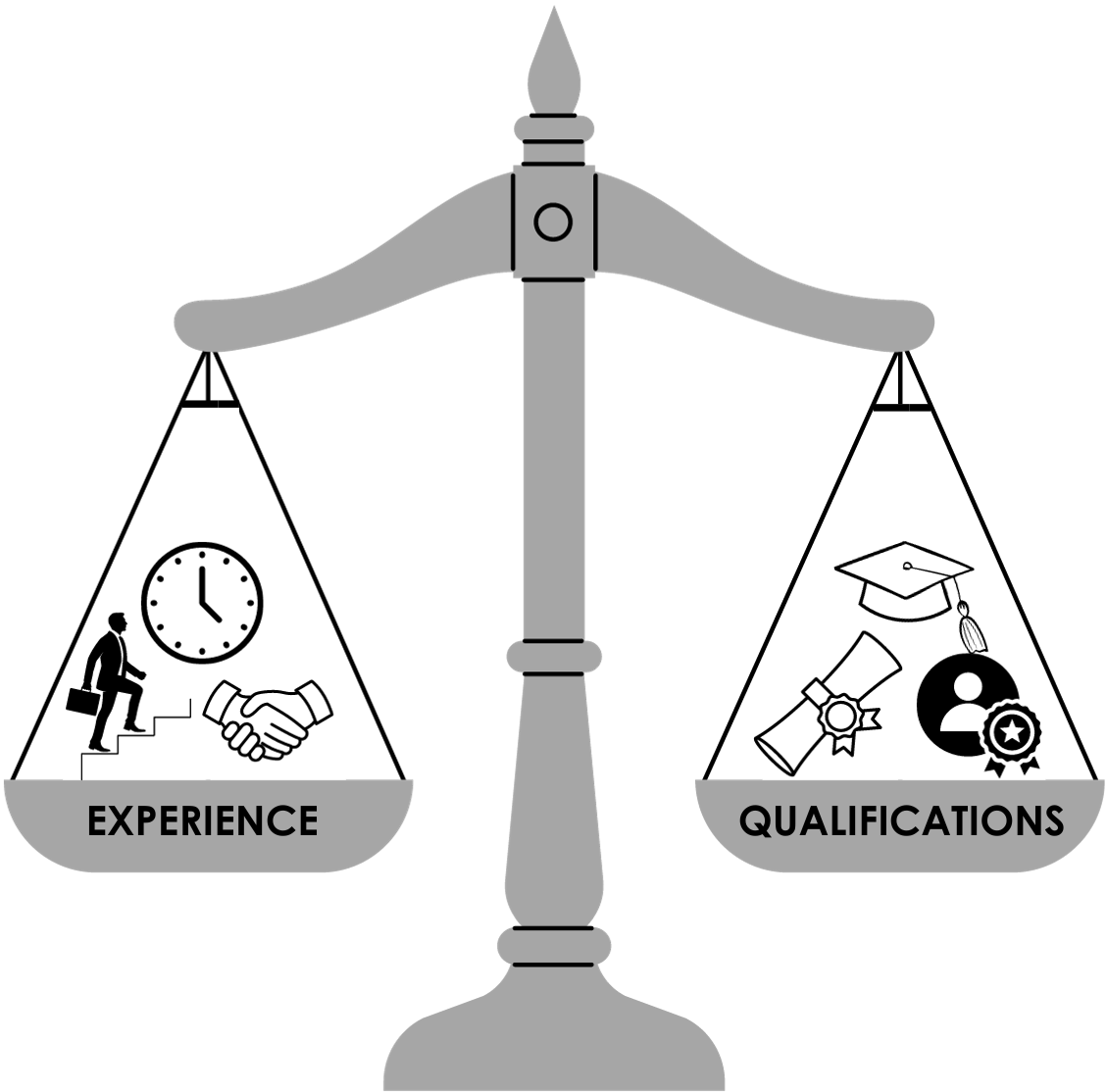Spinwell Global
Interesting Jobs for Interesting People
Navigating Tough Job Interview Questions About Toxic Work Environments

Job interviews can be nerve-wracking, especially when faced with questions about past roles that involved challenging or toxic work environments. While it’s important to remain honest, it’s equally essential to strike a professional tone and frame your answers in a way that reflects your resilience, adaptability, and growth. Here’s how to navigate these tough questions with poise and professionalism.
Understanding Why Employers Ask About Previous Roles
When an interviewer asks about your previous work environment, they’re often trying to:
- Gauge Your Professionalism: How do you speak about a difficult situation or previous employer? Do you stay respectful and tactful?
- Assess Your Problem-Solving Skills: How did you handle challenges in a toxic workplace? Did you grow from the experience?
- Determine Cultural Fit: Are you someone who can thrive in their company culture, or are there red flags in how you handle conflict?
Answering these questions effectively shows that you are reflective, solution-oriented, and capable of maintaining professionalism even in trying circumstances.
How to Prepare for Tough Questions
Here are some strategies to craft thoughtful responses while staying true to your experience:
Stay Positive and Professional
- Avoid badmouthing your previous employer or team.
- Instead, focus on what you learned from the experience and how it shaped your approach to work. For example:
- “While the environment presented challenges, I focused on maintaining my professionalism and honing my ability to manage stress effectively.”
Focus on Your Actions, Not the Drama
- Instead of diving into the details of what made the workplace toxic, highlight how you responded to the situation.
- For instance: “I learned the importance of clear communication and setting boundaries, which helped me stay productive and build trust with colleagues, even in challenging circumstances.”
Reframe Challenges as Growth Opportunities
- Use the experience to demonstrate your resilience and commitment to personal development. A response might look like this:
“The experience taught me how to navigate difficult situations with diplomacy and focus on solutions. I believe these skills make me a stronger team player.”
Keep It Brief and Redirect
- Don’t let the interview dwell too long on negative experiences. Answer honestly but move the conversation toward how you’re excited about the new role. For example:
“While there were challenges, I’m grateful for the lessons I learned. I’m really excited about the opportunity to contribute to a positive, collaborative team here.”
Sample Responses for Tough Questions
Here are some examples of how you can respond to specific interview questions about toxic work environments:
- “Why are you leaving your current role?”
Example Answer:
“I’m looking for a role where I can grow professionally and work in a collaborative environment. While I’ve learned a lot from my current position, I’m ready to take on new challenges and contribute to a positive team culture.”
- “Can you tell me about a difficult situation at your previous job?”
Example Answer:
“In my previous role, there were some challenges related to communication. I made it a priority to address this by fostering open dialogue and ensuring clarity in team projects. This experience taught me the value of proactive communication and teamwork.”
- “What did you like least about your previous job?”
Example Answer:
“Every role has its challenges, and while there were aspects that were difficult, I appreciated the opportunity to strengthen my adaptability and problem-solving skills. I’m excited to apply what I’ve learned to a more collaborative environment.”
Key Takeaways
- Stay Professional: Avoid negativity or badmouthing. Keep your responses constructive and focused on your growth.
- Emphasize Growth: Use the experience to showcase your resilience, adaptability, and ability to thrive in challenging situations.
- Redirect the Conversation: Keep your answers brief and steer the conversation toward your enthusiasm for the new role.
By preparing thoughtful responses and maintaining a professional tone, you can turn tough interview questions about toxic workplaces into an opportunity to highlight your strengths and personal growth. Remember, every experience—even a challenging one—can add value to your journey. Good luck!
Get in touch with us
NK
Navigating the Paradox of Productivity in the Workplace

In today’s fast-paced work environment, it’s common to feel a tug-of-war between wanting to do more and recognising the substantial efforts you already put in. This internal conflict can lead to feelings of frustration and inadequacy, even when you’re already performing admirably. Let’s explore this paradox and how to find balance.
Understanding the Feeling of “Doing More”
It’s natural to want to excel in your job and contribute significantly to your team and organisation. This drive often stems from a variety of sources:
- Personal ambition: Many individuals are motivated by personal goals and the desire for career advancement.
- External expectations: Colleagues, managers, or industry standards might create a perception that more is always needed.
- Comparisons: Social media and professional networks can lead to constant comparisons, making it seem like others are doing more.
Acknowledging Your Contributions
While striving for more can be a positive motivator, it’s essential to acknowledge the hard work you’re already doing. Consider these points:
- Reflect on achievements: Take time to list your accomplishments, both big and small. This exercise can help you recognise the value you bring to your role.
- Seek feedback: Engaging with colleagues and supervisors can provide insight into your contributions and help you see your work from a different perspective.
- Celebrate milestones: Recognising your successes, no matter how minor, can boost your morale and reinforce your sense of achievement.
Finding Balance
To navigate the desire to do more while appreciating your current efforts, consider the following strategies:
- Set realistic goals: Instead of overwhelming yourself with lofty aspirations, break down your objectives into manageable tasks. This approach can help you prioritise and reduce anxiety.
- Embrace self-care: Remember that productivity is not solely about work output. Taking care of your mental and physical well-being is crucial for long-term performance.
- Engage in continuous learning: If you feel stagnant, consider pursuing professional development opportunities. This can include taking courses, attending workshops, or seeking mentorship.
Feeling like you could be doing more in your job is a common experience, but it’s important to balance that with an appreciation for what you’ve already accomplished. By recognising your contributions, setting realistic goals, and investing in your personal growth, you can find a healthier perspective on productivity. Remember, it’s not just about doing more; it’s about doing meaningful work and nurturing your passion along the way.
As you navigate this journey, be kind to yourself and acknowledge that you are already doing a lot!
Get in touch with us
NK
Mobile-First Recruitment: Pros and Cons

As technology continues to evolve, the way we approach recruitment has transformed significantly. One of the most notable shifts is the rise of mobile-first recruitment, which prioritises mobile-friendly application processes. With the increasing number of job seekers using their smartphones to search for and apply to jobs, businesses must adapt. In this blog, we’ll explore the pros and cons of mobile-first recruitment.
Pros of Mobile-First Recruitment
Increased Accessibility
Mobile-first recruitment makes job applications more accessible. Candidates can apply for positions anytime and anywhere, increasing the pool of applicants. This flexibility is especially beneficial for those who may not have access to a computer during traditional working hours.
Enhanced Candidate Experience
A streamlined mobile application process can greatly enhance the candidate experience. Intuitive interfaces and shorter application forms can reduce frustration and abandonment rates. Candidates are more likely to complete their applications if the process is user-friendly.
Faster Hiring Process
With candidates able to apply on-the-go, the hiring process can become faster. Recruiters can receive applications in real-time and respond promptly, reducing the time-to-hire and improving overall efficiency.
Attracting Younger Talent
Younger generations, particularly Millennials and Gen Z, are accustomed to using their smartphones for most online activities, including job searching. A mobile-first approach can help companies connect with this demographic more effectively.
Cons of Mobile-First Recruitment
Limited Screen Space
Mobile devices have limited screen space compared to desktops, which can make it challenging to convey detailed information about job roles and company culture. Important details might be overlooked if not presented succinctly.
Potential for Incomplete Applications
While mobile applications can be convenient, they may lead to incomplete submissions. Candidates might rush through the process on their phones, resulting in missing information that could affect their chances of being considered.
Security Concerns
Mobile devices can be more vulnerable to security threats. Sensitive information shared during the application process may be at risk, raising concerns for both candidates and employers.
Not All Candidates Prefer Mobile
While mobile recruitment is on the rise, not all candidates prefer applying via their phones. Some individuals may still favour traditional desktop applications, especially for senior roles or positions requiring extensive documentation.
Mobile-first recruitment is transforming the hiring landscape, offering both significant advantages and potential drawbacks. By prioritising mobile accessibility, companies can enhance candidate experiences, attract younger talent, and speed up the hiring process. However, organisations must also be aware of the challenges, such as limited screen space and security concerns.
As recruitment continues to evolve, it’s essential for businesses to strike a balance between mobile and traditional recruitment strategies to cater to the diverse preferences of all job seekers. Embracing a holistic approach will help organisations maximise their reach and secure the best talent in an increasingly competitive job market.
Get in touch with us
NK
Top In-Demand Jobs in the UK Job Market for 2025

As we navigate 2025, the UK job market is evolving, driven by advancements in technology, an aging population, and a growing focus on sustainability. Whether you’re planning a career change or looking to enter the workforce, here are some of the most in-demand jobs in the UK right now:
Technology Leads the Way
The tech industry continues to boom, with roles like software developers, data analysts, and cybersecurity specialists topping the demand list. As businesses adopt AI and digital tools, tech professionals are the backbone of this transformation.
Healthcare Heroes
Healthcare professionals remain vital, especially nurses, doctors, and mental health specialists. With ongoing pressures on the NHS and an aging population, this sector offers stability and purpose.
Engineering Innovation
Engineers are essential for the UK’s infrastructure and sustainability goals. Civil, mechanical, and renewable energy engineers are in high demand as the country invests in green energy and modernised infrastructure.
Educators Shape the Future
The education sector is in need of teachers, particularly in STEM subjects (science, technology, engineering, and mathematics). If you’re passionate about shaping the next generation, this field is worth exploring.
Creative and Marketing Roles
In a digital-first world, creative professionals like graphic designers, digital marketers, and content creators are increasingly sought after. Businesses need creative minds to craft compelling brand stories and connect with audiences.
Green Jobs for a Sustainable Future
With climate change at the forefront, sustainability-focused roles have surged. Jobs in renewable energy, environmental consultancy, and green technology are not only in demand but also contribute to a better planet.
Finance and Business Professionals
From accountants to HR managers and financial analysts, the corporate world relies on these roles to ensure smooth operations and growth.
The UK job market is full of opportunities in 2025, particularly in industries that prioritise technology, healthcare, and sustainability. By aligning your skills with these high-demand areas, you can build a fulfilling and future-proof career.
Looking to upskill or start fresh? The future is bright—now’s the time to seize it!
Get in touch with us
NK
Top Recruitment Trends to Watch in 2025

The recruitment landscape is evolving faster than ever in 2025, driven by advancements in technology, changing workforce expectations, and a global demand for top-tier talent. Organisations are rethinking traditional hiring practices to stay competitive in this dynamic environment. Here’s a quick look at the key trends shaping the future of recruitment:
AI is Transforming Recruitment
Artificial Intelligence (AI) is no longer just a buzzword—it’s a game-changer in recruitment. From automating repetitive tasks like resume screening to offering deep insights into candidate fit, AI is enabling recruiters to focus more on strategic decision-making. Tools powered by AI are also enhancing candidate experiences by providing personalised recommendations and faster communication.
Skills Over Degrees
In 2025, the priority is clear: skills matter more than traditional qualifications. Organisations are moving toward skills-based hiring, where the focus is on what candidates can do rather than their academic backgrounds. This shift ensures that businesses are equipped with the talent they need to meet ever-changing industry demands.
The Candidate Experience is King
A seamless and positive candidate journey is now a top priority for recruiters. With fierce competition for talent, companies are investing in tools and strategies that improve every step of the process—clear communication, faster feedback, and personalised interactions are becoming the standard.
The War for Talent Intensifies
The demand for skilled talent is at an all-time high, and companies are pulling out all the stops to attract the best. Competitive salaries, flexible work arrangements, and robust career development opportunities are key strategies being employed to stand out in the crowded job market.
Data-Driven Decisions
Data is the backbone of smarter recruitment strategies. By analysing hiring trends, workforce data, and market insights, companies can make informed decisions about where and how to find the best talent. Predictive analytics is also helping businesses anticipate future hiring needs and plan proactively.
Diversity, Equity, and Inclusion (DEI) Take Centre Stage
Building diverse and inclusive teams is more than just a trend—it’s a necessity. Companies are rethinking their hiring practices to reduce bias and ensure equal opportunities for all candidates. DEI is no longer optional; it’s a critical element of a successful recruitment strategy.
Hybrid Work is the New Normal
As hybrid and remote work models dominate, candidates are prioritising flexibility. Employers are adapting by offering remote work options and rethinking their workplace policies to attract and retain top talent.
The recruitment world in 2025 is all about adapting to the future—leveraging technology, focusing on skills, and creating inclusive, flexible workplaces. Organisations that embrace these trends will be well-positioned to win the race for talent in this competitive market.
Get in touch with us
NK
Dealing with Job Rejection: A Quick Guide

Job rejection can feel disheartening, but it’s a common experience in the job search process. Rather than viewing it as a setback, consider it an opportunity for growth and reflection. Here’s a more detailed approach to coping with job rejection effectively:
Allow Yourself to Feel Disappointed
It’s perfectly normal to experience feelings of disappointment, sadness, or frustration after a rejection. Take some time to acknowledge these emotions, but set a limit for how long you’ll dwell on them. Allowing yourself to feel is part of the healing process.
Reflect and Learn
After processing your emotions, it’s time to reflect. Ask yourself what went well and what could be improved. Consider factors such as your resume, interview performance, or overall fit for the role. This self-assessment will help you identify areas for growth.
Maintain a Positive Mindset
Rejection can shake your confidence, but remember that it doesn’t define your worth. Focus on your strengths and accomplishments. Celebrate small victories along the way, such as landing interviews or receiving positive feedback from past employers.
Seek Constructive Feedback
If you’re comfortable, reach out to the interviewer or hiring manager for feedback on your application or interview. Constructive criticism can provide valuable insights that help you improve your future applications. Be gracious in your request and open to any suggestions they may have.
Expand Your Network
Networking is a powerful tool in the job search. Connect with professionals in your industry, attend networking events, and leverage platforms like LinkedIn to broaden your connections. Networking can lead to new opportunities and referrals that may not be publicly advertised.
Prioritize Self-Care
During this challenging time, it’s important to take care of your mental and physical health. Engage in self-care activities that rejuvenate you, whether it’s exercise, meditation, or spending time with loved ones. Surround yourself with supportive friends and family who can uplift you.
Keep Moving Forward
Finally, remember that job rejection is not the end of your journey. Keep applying and refining your approach based on what you’ve learned. Persistence is key! Each application brings you one step closer to the right opportunity.
Job rejection is a normal part of the career path. By processing your emotions, learning from the experience, maintaining a positive outlook, and expanding your network, you can turn rejection into a stepping stone for future success. Embrace the journey—your next opportunity may be just around the corner!
Get in touch with us
NK
Embracing Diversity Initiatives in Recruitment

In today’s rapidly evolving workplace, the importance of diversity and inclusion in recruitment cannot be overstated. Organisations that prioritise diversity not only create more equitable hiring practices but also unlock a wealth of benefits that can enhance their overall performance. Here’s a closer look at diversity initiatives in recruitment and why they matter.
Broadening Talent Pools
To attract a diverse workforce, companies must broaden their recruitment channels. This means looking beyond traditional job boards and actively seeking talent in underrepresented communities. Utilising platforms that cater specifically to diverse groups—such as women, LGBTQ+ individuals, and people with disabilities—can significantly expand the talent pool and bring fresh perspectives into the organisation.
Unbiased Recruitment Processes
One of the key components of effective diversity initiatives is minimising unconscious bias in recruitment. Organisations can implement practices like anonymising resumes and using structured interviews to ensure that candidates are evaluated fairly based on their skills and qualifications. By creating a level playing field, companies can better identify top talent from diverse backgrounds.
Creating Diverse Referral Programs
Leveraging existing employees as advocates for diversity can also enhance recruitment efforts. By encouraging current staff to refer candidates from diverse backgrounds, organisations can tap into new networks and foster a more inclusive culture. This approach not only diversifies the candidate pipeline but also promotes a sense of community within the workplace.
Commitment to Inclusion
Successful diversity initiatives require a strong commitment from leadership. It’s essential for organisations to communicate the importance of diversity and inclusion throughout all levels of the company. When leadership prioritises these values, it sets the tone for the entire organisation and encourages everyone to embrace inclusive practices.
Continuous Improvement
Diversity initiatives should not be a one-time effort; they require ongoing evaluation and refinement. Organisations must regularly assess their recruitment strategies to identify areas for improvement. By adapting to changing demographics and societal expectations, companies can ensure that their diversity initiatives remain effective and relevant.
The Benefits of Diversity
The advantages of implementing diversity initiatives in recruitment are numerous. Diverse teams foster enhanced creativity and innovation, as varied perspectives lead to more comprehensive problem-solving. Additionally, a commitment to diversity can improve employee satisfaction, as individuals feel valued and included. Ultimately, research shows that diverse organisations often outperform their less diverse counterparts, making diversity a key driver of business success.
In conclusion, embracing diversity initiatives in recruitment is not just a moral imperative; it’s also a smart business strategy. By prioritising diversity and inclusion, organisations can create a more dynamic workforce that drives success and innovation. As we move forward, let’s commit to building workplaces that reflect the rich tapestry of our society, where every voice is heard and valued.
Get in touch with us
NK
2025 Recruitment Trends in the UK

As we step into 2025, the recruitment landscape in the UK is evolving rapidly, shaped by technological advancements, changing workforce expectations, and economic factors. Here, we explore the key trends that are set to define recruitment in the UK throughout the year.
Emphasis on Remote and Hybrid Work
The pandemic has permanently altered work dynamics, with remote and hybrid working models becoming the norm rather than the exception. In 2025, organisations will continue to embrace flexibility in their work arrangements. Candidates now prioritise roles that offer a balance between in-office and remote work, leading employers to adapt their recruitment strategies to attract top talent.
Focus on Diversity and Inclusion
Diversity and inclusion (D&I) will remain at the forefront of recruitment strategies. Companies are recognising the importance of a diverse workforce in fostering innovation and improving business performance. In 2025, we can expect to see:
- Targeted outreach to underrepresented groups.
- Bias-free recruitment processes through the use of technology and structured interviews.
- D&I metrics being integrated into performance evaluations for hiring managers.
Use of AI and Automation
Artificial Intelligence (AI) and automation tools are revolutionising how organisations recruit. By 2025, we anticipate that:
- AI-driven applicant tracking systems will streamline the recruitment process, allowing for quicker and more efficient candidate screening.
- Chatbots will handle initial candidate queries and scheduling, freeing up recruiters to focus on strategic tasks.
- Predictive analytics will help employers identify the best candidates based on historical hiring data.
Skills-Based Hiring
The shift towards skills-based hiring is gaining momentum. In 2025, employers will place greater emphasis on a candidate’s skills and abilities rather than solely their qualifications or work experience. This trend includes:
- Skills assessments during the recruitment process to evaluate candidates objectively.
- A broader view of what constitutes relevant experience, recognising transferable skills from various backgrounds.
Employer Branding and Candidate Experience
In a competitive job market, employer branding will be crucial for attracting talent. Candidates are researching potential employers more than ever, seeking companies with strong cultures and values. In 2025, organisations will:
- Prioritise a positive candidate experience throughout the recruitment journey.
- Utilise social media and online platforms to showcase their workplace culture and employee testimonials.
- Implement feedback mechanisms to continuously improve the recruitment process.
Increased Focus on Employee Wellbeing
The importance of employee wellbeing is taking centre stage in recruitment strategies. Employers are recognising that a healthy work-life balance and mental health support are essential for attracting and retaining talent. Key initiatives in 2025 may include:
- Wellbeing programmes as part of the employee value proposition.
- Flexible benefits packages that cater to individual needs, such as mental health days and wellness allowances.
The recruitment landscape in the UK is undergoing significant transformation as we enter 2025. By embracing trends such as remote work, diversity and inclusion, AI technology, skills-based hiring, employer branding, and employee wellbeing, organisations can position themselves as attractive destinations for top talent. As the job market continues to evolve, staying ahead of these trends will be essential for successful recruitment strategies. For employers, adapting to these changes is not just an option; it is a necessity to thrive in the competitive landscape of 2025.
Get in touch with us
NK
New Year, New Job?

As the clock strikes midnight on December 31st, we often find ourselves reflecting on the past year and setting intentions for the year ahead. For many, the arrival of a new year signifies a fresh start, and what better way to embrace this than by considering a new job? Whether you’re looking for a career change, seeking new challenges, or simply wanting to enhance your professional growth, the new year can be the perfect time to take that leap.
Why Consider a New Job?
- Personal Growth: A new job can offer exciting opportunities for learning and development. It can push you out of your comfort zone and help you acquire new skills that can be beneficial in the long run.
- Career Advancement: If you feel stagnant in your current role, a new job can provide a pathway to career advancement. New positions often come with increased responsibilities and the potential for promotions.
- Work-Life Balance: Many people seek a job that aligns more closely with their personal values and lifestyle. The new year is an excellent time to reassess your work-life balance and find a role that better suits your needs.
- Networking Opportunities: Starting a new job allows you to expand your professional network. Meeting new colleagues and industry professionals can open doors to future opportunities and collaborations.
Tips for Landing a New Job
- Update Your CV: Ensure your CV is current and highlights your most relevant experiences. Tailor it to the specific roles you’re applying for to make a strong impression.
- Leverage Online Platforms: Utilise job search engines and professional networking sites like LinkedIn to find job postings. Engage with recruiters and participate in industry-related groups to increase your visibility.
- Prepare for Interviews: Practising common interview questions and researching the companies you’re applying to is crucial. Confidence and preparation can make a significant difference during the interview process.
- Set Realistic Goals: It’s essential to set achievable goals for your job search. Whether it’s applying to a certain number of jobs each week or attending networking events, having a plan can help you stay motivated.
- Stay Positive: Job hunting can be challenging, but maintaining a positive attitude is key. Celebrate small victories along the way, and don’t hesitate to seek support from friends or mentors.
As we step into 2025, the idea of a new job can be both exciting and daunting. Embrace the possibilities that come with a fresh start, and remember that change can lead to new avenues of success. Whether you’re just starting your job search or contemplating a significant career shift, the new year is an ideal time to set your intentions and pursue the career of your dreams.
So, take a deep breath, update that CV, and get ready to discover the opportunities that await you in the year ahead!
Get in touch with us
NK
Experience vs Qualifications: Striking the Perfect Balance

In today’s competitive job market, the debate between experience vs qualifications has become a hot topic. Employers often find themselves torn between candidates with extensive experience and those armed with impressive qualifications. But which holds more value? Is experience truly the best teacher, or do qualifications play a significant role in shaping a successful career?
In this blog post, we will delve into the nuances of this age-old debate and explore the importance of finding the perfect balance between experience and qualifications.
Experience
The Power of Hands-On Learning Experience is the ultimate teacher. It provides invaluable lessons that cannot be taught in a classroom. Through real-life challenges and problem-solving, individuals gain practical skills, adaptability, and resilience.

Experience allows us to put theory into practice, honing our abilities and developing a deep understanding of our chosen field.
When considering experience, employers often prioritize candidates who have proven track records of success. They value the ability to apply knowledge in practical situations, make informed decisions under pressure, and navigate complex scenarios.
Moreover, experienced professionals often possess a wealth of industry-specific knowledge and insights, making them valuable assets to organizations seeking to drive innovation and growth.
Qualifications
While experience is undoubtedly crucial, qualifications provide individuals with a solid foundation of knowledge.

Academic degrees, certifications, and specialized training programs equip individuals with theoretical frameworks, analytical skills, and critical thinking abilities. These qualifications often serve as prerequisites for entry into certain professions, ensuring a baseline level of competence.
Qualifications also demonstrate a candidate’s commitment to learning and their ability to acquire new skills. They showcase a strong work ethic and a desire for personal and professional growth. Moreover, qualifications can open doors to opportunities that may not be accessible solely based on experience, particularly in highly regulated industries or fields where technical expertise is paramount.
Striking the Perfect Balance
Rather than viewing experience and qualifications as opposing forces, it is essential to recognize the power of finding a harmonious balance between the two. The ideal candidate possesses both hands-on experience and relevant qualifications, creating a well-rounded skill set that sets them apart from their peers.
Employers should consider not only the quantity of experience and qualifications but also their relevance and quality. A candidate who has accumulated years of experience in a different industry may not possess the necessary expertise for a specific role, while a highly qualified individual with no practical experience may struggle to apply theoretical knowledge effectively.
Finding the right balance requires employers to evaluate a candidate’s ability to transfer skills and knowledge from one context to another. Assessing their adaptability, willingness to learn, and potential for growth is crucial in identifying the ideal candidate who can thrive in a dynamic and ever-changing work environment.

In conclusion, experience vs qualifications are not mutually exclusive; they are complementary elements that, when balanced effectively, can drive success in one’s career. Employers should recognize the value of both hands-on learning and academic achievements when making hiring decisions. Likewise, individuals should strive to cultivate a diverse range of experiences while continuing to invest in their education and professional development. By striking the perfect balance between experience and qualifications, individuals can unlock countless opportunities and become invaluable assets in their chosen fields.



